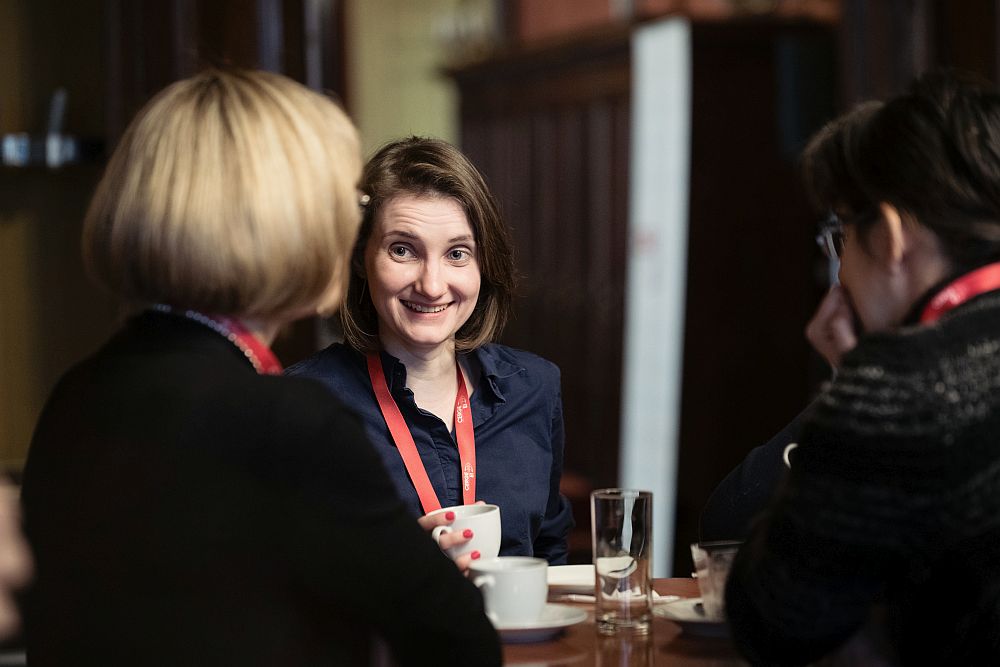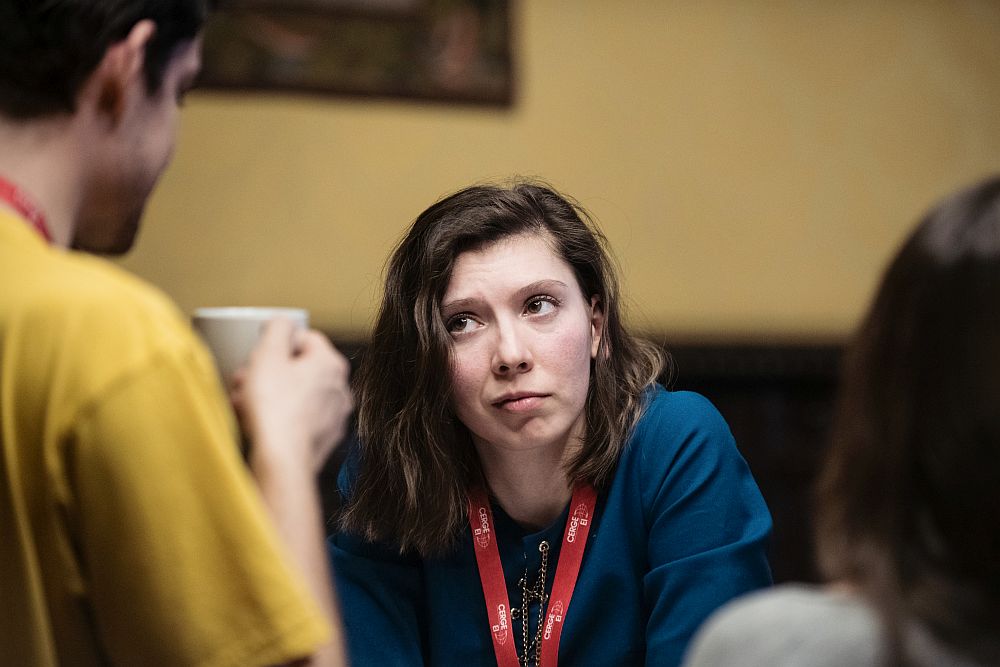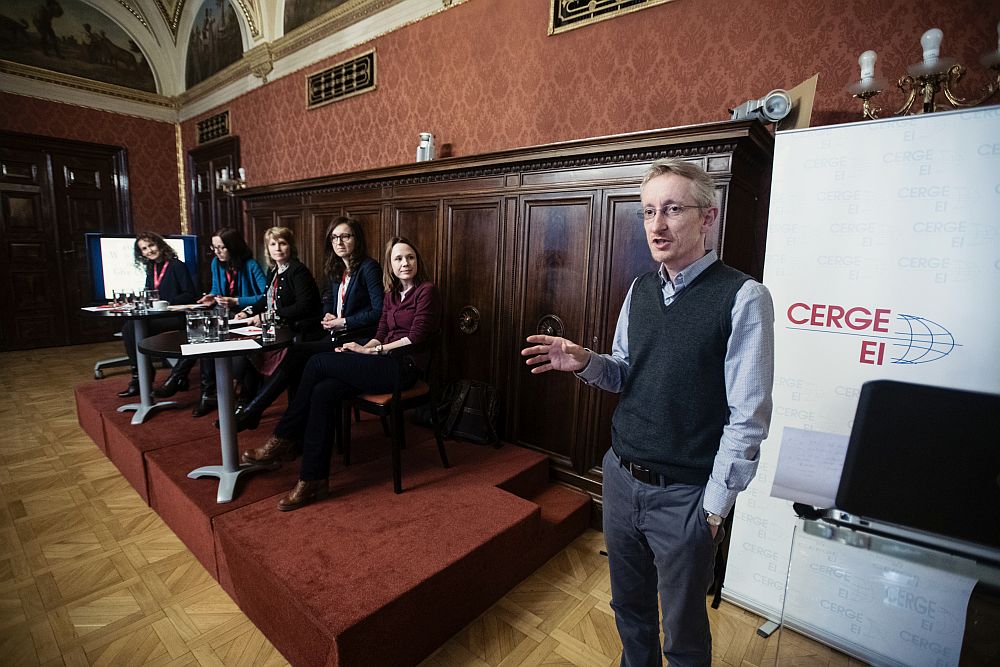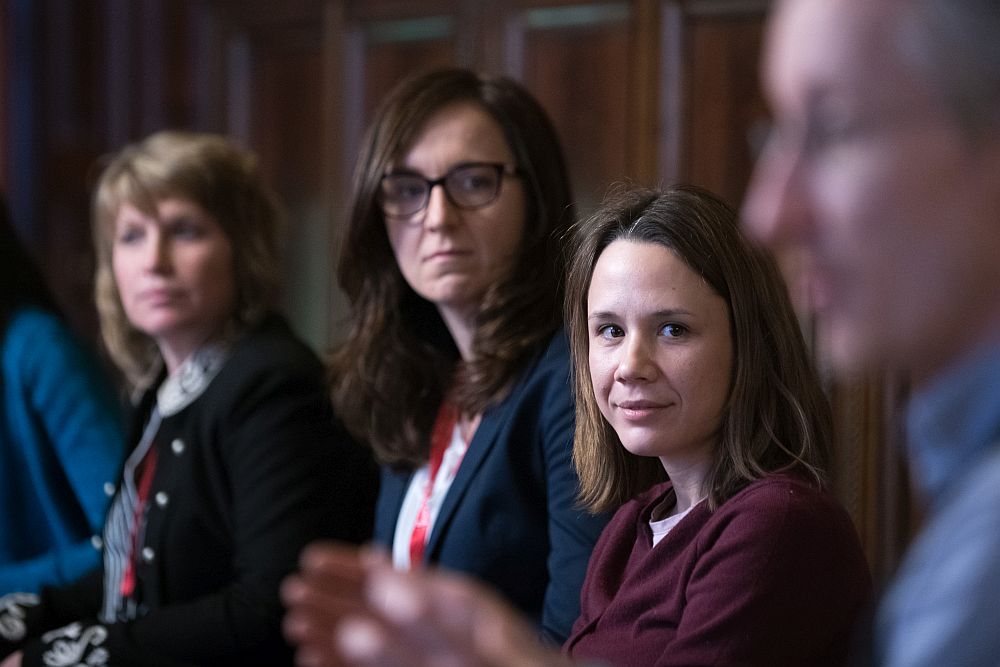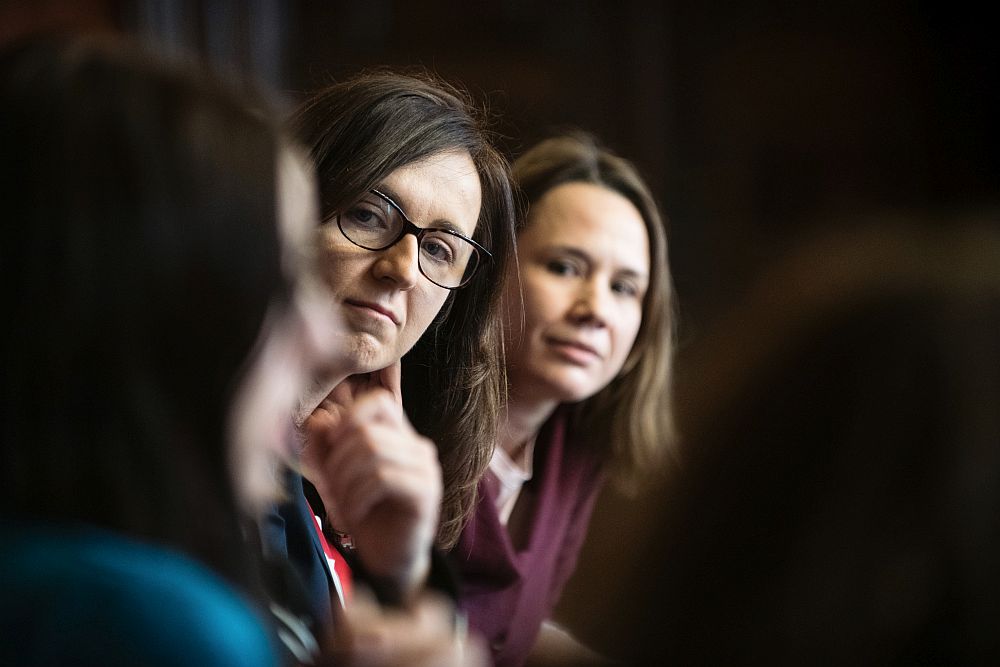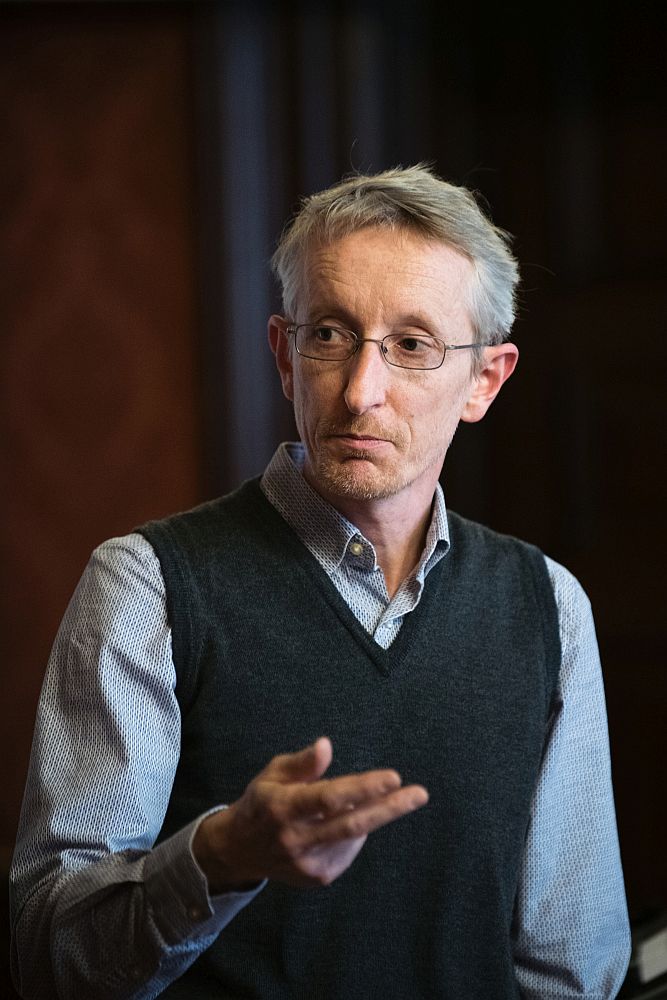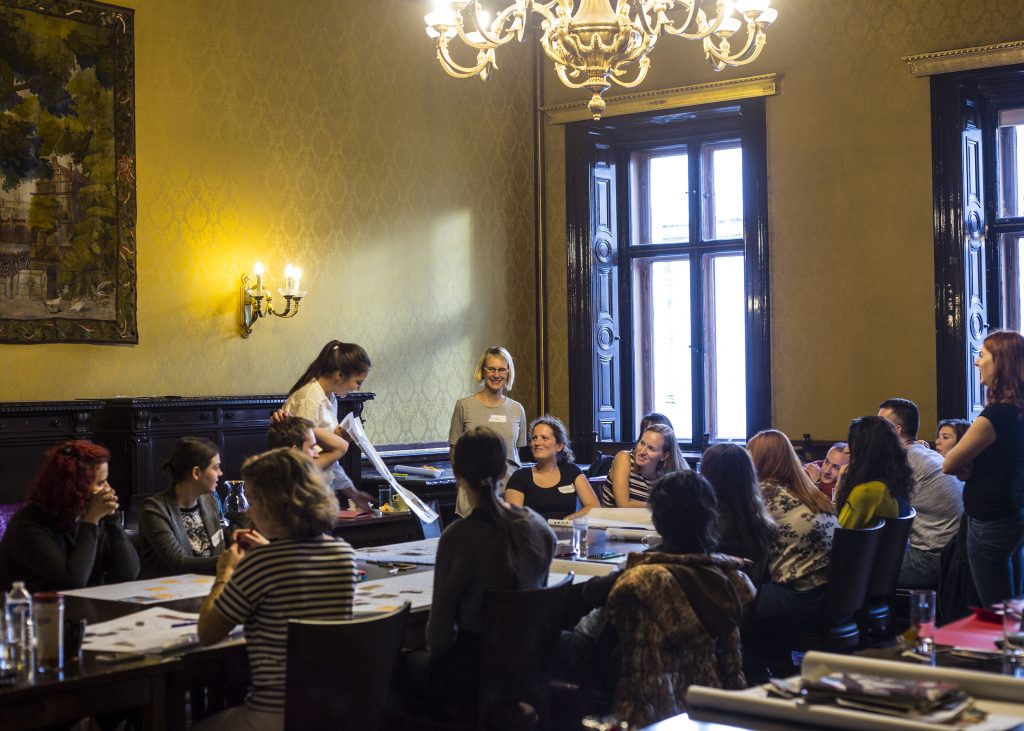“Doing a PhD is a long-distance run. Don’t run it alone!”
This platform was created for academic and research institutions which would like to start their own mentoring programs. PhD candidates who would like to get information about available mentoring programs in Czech academia may find useful some of the links below.
About
Firmly believing that bringing new examples of good practice and sharing this experience is as important as supporting researchers themselves, CERGE-EI ran a Mentoring Program for Women Researchers in 2018-2019 (in cooperation with the Centre for Gender and Science of the Czech Academy of Sciences). This web page summarizes the most important things that we have learned.
What is mentoring?
Mentoring is a process through which younger and less experienced people are offered support, advice and encouragement to pursue a successful and fulfilling career. Besides practical help, role models play an important part, as they represent the diversity of approaches that can lead to a similar goal.
Why is it good to set up a mentoring program?
There is perhaps no better way to encourage students to progress with their dissertation, to connect current PhD candidates with alumni and people from other research institutions, to support academicians and researchers in their professional development, and revive community life at your institution, than starting a mentoring program.
Why do we mention women specifically ?
Our program addressed the fact that while there are many women PhD candidates, women are under-represented in senior positions, and often face more difficult challenges during their professional career.
The situation where women researchers give up their career plans in this context is a great loss for society as a whole: for students, their families, universities, research centers and companies. On the other hand, trying to address this issue can be very rewarding for the whole institution and the community surrounding it (and, in the long term, for the whole field).
How does our program look like?
Our mentoring program was a 2-month series of workshops and meetings, which help students a) to define career goals and the steps needed to achieve them (an Introductory Workshop organized in cooperation with the Centre for Gender and Science of the Czech Academy of Sciences), b) meet with scientists and researchers from various fields (and at different stages of their career) who share their experience and advice, c) network with their peers.
While our program primarily focused on women, men were cordially welcome as well, as most topics of our workshops are universal.
Start Your Own
Tips
These are tips for academic and research institutions which would like to run their own mentoring programs:
- Find out what your students and researchers need, as needs can actually differ by field, year of study, or current position. You can create a simple survey and/or a focus group about which kind of support is actually needed, which form is the most suitable, how time-consuming it should be etc.
- Assess your own resources (human resources, time, contacts for guests/lecturers/mentors, funding). When talking to faculty members, stress the advantages the existence of such a program has for them (such as less work, better prepared and motivated students). The fact that the program is universal (not providing support for “weaker“ students and researchers) and brings alumni back to the institution may be an important addition too.
- Schedule a pilot season, which will be simple enough to test it, but sustainable enough to continue. You do not need to offer a year-long program from the very start: it is better to run an intensive session to see what works best.
- Try to invite guests who will represent various paths and approaches, and will be at different stages of their career. This will allow students to be more confident about their own path, which will be different too.
- Do not show successes only: successful people fail too, and there are many “successful failures” which seemed grave, but then turned into something good. It helps especially the youngest ones to deal with their worries, which affect negatively their plans, talents and skills.
- Gather enough feedback and documentation (to design the next season and be able to promote it).
- Stay flexible and keep the format as informal as possible. Do not create too fix a structure and do not overwhelm participants with too many templates. The biggest potential of any mentoring program lies within the people who share their experience, you are just creating a framework within which this happens.
- Connect with other institutions (including those abroad) which may offer their advice or expertise, or help you to connect with possible guests or lecturers.
- Work with your students further. They can suggest topics for workshops they need, being practical or scientific. These follow-up activities may be offered to a broader audience (your students who did not sign up for the mentoring program itself), and then have a bigger impact.
If you would like to consult your plan to set up your own mentoring program in detail, feel free to contact Kateřina Cidlinská, Chair of European Network of Mentoring Programs and Coordinator of the Mentoring Program for Early Career Researchers of the Institute of Sociology of the Czech Academy of Sciences, katerina.cidlinska@soc.cas.cz, 728 026 891.
Downloads
CERGE-EI Think-Tank IDEA Publications
Institute of Sociology of the Czech Academy of Sciences, Centre for Gender & Science Publications
Links
The following list is not exhaustive and is updated continuously. Would you like to be listed here? Do let us know. Thank you!
Czech Republic
CERGE-EI Economics Discovery Hub (free courses and workshops)
Centre for Gender and Science Mentoring Program (mentoring program offering individual mentors & + free courses and workshops )
Czexpats in Science (platform for Czech scientists living abroad)
CzechITas (platform for women focusing on information technology)
PhD Existence (conference about/for PhD candidates organized by Palacky University Olomouc)
International
Eument-net (European network of mentoring programs)
The Marie Curie Alumni Association Blog (blog for scientific researchers)
PhD Life Blog University of Warwick (blog of the Research Exchange at the University of Warwick)
Parent Carer Scientist (book by Professor Ottoline Leyser, published by the Royal Society of London for Improving Natural Knowledge)
People
The following testimonials, photographs and videos should give you some ideas of how the program looked in real life.

“Do ask for help when you need it. Nobody can work on their own, and senior scientists have a lot to share with junior ones.”
Inés Hardoy, Institute for Social Research, Oslo

“Be ready for the fact that everything will be different from your plans anyway. Be prepared to listen to yourself and look for things that matter to you the most.”
Pavlína Louženská, Google Developers Launchpad and ♯HolkyzMarketingu

“There are no straightforward careers, it is a journey. Things will fall into place if you don’t give up. People will come to help you.”
Alexandra Tsvetkova, OECD Trento Centre for Local Development

“Do not be afraid that you will fail. Successful people fail all the time. It is just part of our job as scientists.”
Helena Fulková, Institute of Experimental Medicine, Czech Academy of Sciences

“Research work provides us with the luxury of choosing what we want to work on. Focus on the topic that you really enjoy. Work is such a big part of our lives.“
Zuzana Fungáčová, Bank of Finland Institute for Economies in Transition

“Find your strengths, do your research, reach out to ask questions, be ready. It is important to work in an institution that fits your interests and build on your strengths, not your weaknesses.”
Anita Taci, Deputy Director – Strategy Coordination & Results, EBRD
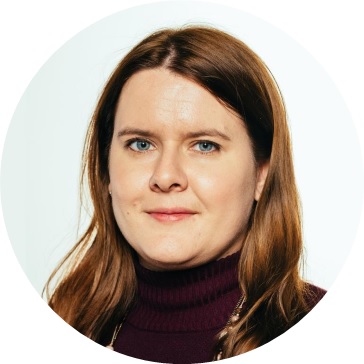
“Keep the balance between your work life, relationships with others, and taking care of yourself. Focusing on only one of these will leave you restless and longing for something more.”
Eva Hromádková, Czech National Bank & CERGE-EI

“Hold on to your goals and dreams. Be open minded: try to get experience abroad, go for visiting stays, attend conferences and workshops and establish international networks in your research area.”
Mariola Pytliková, CERGE-EI and Technical University of Ostrava

“Stay committed to your work, but stay true to yourself. Focus on your development and stay happy.”
Dragana Stanišić, GfK & CERGE-EI Foundation Board

“Networking is the big word for me. Because you do not do things by yourself in your life. It takes a village to raise a child, and it takes a network of people to help you flourish in your career and you family.”
Susan Walton, Frost Consulting & CERGE-EI Foundation Board
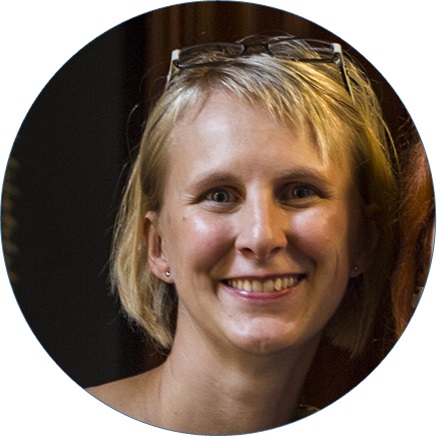
“Be prepared for all the chances that academic life might bring to you.”
Kateřina Machovcová, Institute of Psychology of the Czech Academy of Sciences

“After five years of coordinating mentoring program for early-career researchers I can simply say: it works! For mentees, for mentors, for academic and research communities.”
Kateřina Cidlinská, Centre for Gender and Science of the Czech Academy of Sciences

“Work hard, as it will always payoff in the end. But do enjoy what you are doing, find time for rest and family, meeting friends and traveling, these give energy and meaning.”
Anna Kochanová, Cardiff Business School

“If you support women in science, you are not doing it just for them. You are doing it for your institution, for your field, for all of us.”
CERGE-EI Project Team
Video
Photographs
2019 Season
2018 Season
Contact
Center for Economic Research and Graduate Education-Economics Institute (CERGE-EI)
Development and Public Relations Department
Politických vězňů 7, 111 21 Prague 1, Czech Republic
mentoring@cerge-ei.cz
(+420) 224 005 290
The Mentoring Program for Women Researchers was run by the Center for Economic Research and Graduate Education – Economics Institute (CERGE-EI), a joint workplace of Charles University and the Economics Institute of the Czech Academy of Sciences . Funded by the US Embassy in Prague in 2018 and by the British Embassy Prague in 2019.



















